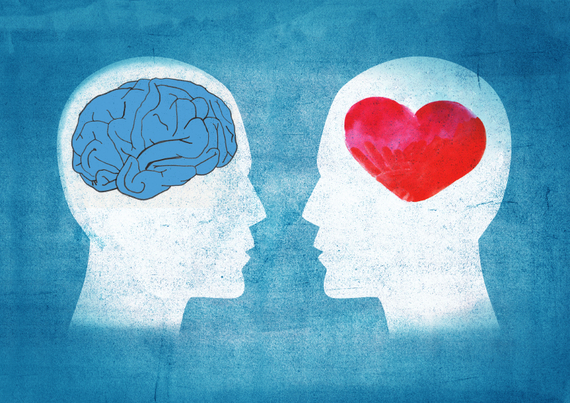
Disney Pixar's new "emotion" picture, Inside Out is not only another endearing creative masterpiece, it also teaches us some important lessons on the nature of our emotions.
It turns out that our unique tapestry of emotional responses -- whether
joy, anger, curiosity, disgust, surprise, sadness, fear, shame or guilt -- all serve a distinctive purpose. Even though we might like to eliminate unfavorable emotions, they serve an important role.
The American Psychological Association defines emotion as a "complex feeling state", impacting nearly all facets of our lives. Our responses are influenced by what we perceive to be "personally significant". We experience emotions in a wide variety of ways, according to what stage of life we are in, our unique temperament, and how we view ourselves- and the situations we find ourselves in.
Inside Out, while appealing largely to a younger audience, offers sound wisdom we can apply to make sense of our emotions-both at work and at home:
1. Feelings add color to our lives. Life would be boring if our emotions were flat lined. We'd lack passion and zest. The wide range of emotions we are capable of experiencing contribute to our human experience and essence -- our personality, mood, behavior and motivation. Yes, emotions can be raw, messy and visceral -- but they can also be profound, beautiful, and comforting. They all add dimension and flavor.
2. We don't always have to think positive. It's unrealistic to think that we are always going to put an instant positive spin on things. Very often, we may need to buy time to regroup and work through complex emotions. Our tendency to want a quick fix can help us look for solutions, but it can also be a trap that makes us fight ourselves when we think we "should" have already gotten past something and instead find ourselves needing time to regroup and put the pieces together.
3. Emotional contrasts are important. When we've experienced difficult emotions, it can help us appreciate the good moments all the more. If we never had to endure rainy days and seasons, we'd have less appreciation for sunny ones once they arrive. In a similar way, it's what makes us enjoy a break after a long and intensive work period.
4. Emotional states aren't permanent. Even though we might think we're forever stuck -- feeling states, like weather patterns, are temporary. The winds of change are inevitable. Knowing this can help us learn to appreciate and anchor down the positive moments and ride out the ones that clobber us and bring us to our knees.
5. Difficult emotions can protect us. If given the choice to completely squash feelings like sadness, rage and disgust, our first tendency might be to instantly jump at the chance. This could be detrimental, since our emotions provide us with all sorts of important information. Our fears or apprehensions often serve us well and prevent us from living with reckless abandon.
6. Emotions reflect our deeper values and desires. Feelings reflect what we care about. In the film, Riley, the main character, grappled with difficult emotions associated with her family moving across the country. Her happy memories of childhood were hard to let go of, bringing about great sorrow and frustration. When we're immersed in sadness or anger during life's changes, it reflects our desire for closeness, connection, and contentment.
7. All emotions can be catalysts towards growth. When we meet a goal or experience success, the energy propels us to keep striving. When we make a mistake, or have setbacks, even though it can be a tough pill to swallow, the emotions generated can prompt us to take action towards improvement.
Inside Out provides a poignant reminder that when our emotional responses are strong in one area-whether joy or sorrow, we can't magically switch gears. We also learn that these emotions are intricately connected, and you can't have one without the other.
We are inevitably going to have powerful responses to our life circumstances. It takes time and effort to sort out our complex emotions and come to terms with change, loss and stressors. We can't force ourselves to feel a certain way at a given moment, but knowing this can help us remember to make the joyful moments count and recognize that the more unsettling ones can also be useful.

